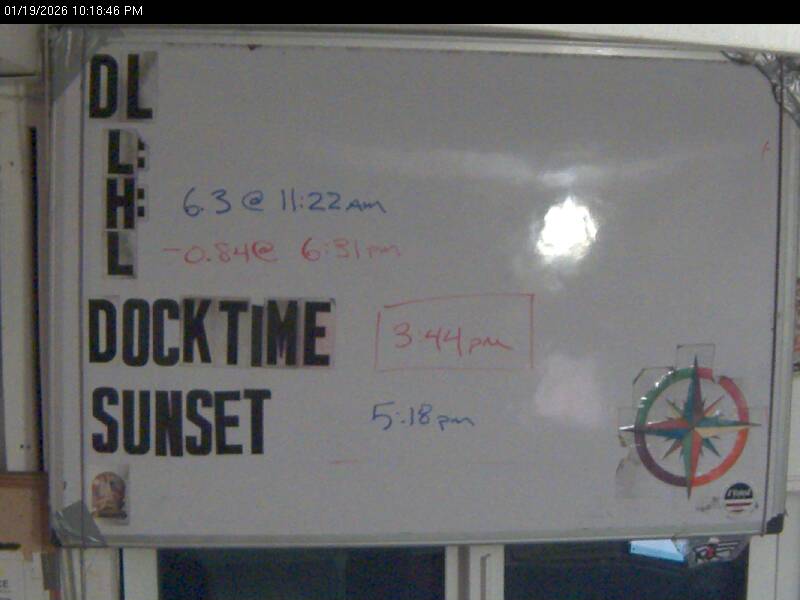How (and why) not to anchor
We talk a lot about how, and when, to anchor properly, how and why to check your anchor is stored properly before leaving the dock, and what to do if things go wrong while anchoring. Hopefully students are getting this talk several times while taking lessons, if not every lesson. Anchoring can make your life easier, give you time to catch your breath, and save you from ending up on the rocks.
However, one thing we don't talk about often enough, imo, is why you maybe shouldn't be anchoring. I will preface this as pertaining to junior skippers and above. Students and novices should be anchoring early and often, for many reasons. They take longer to deal with situations, and exhaust themselves more quickly in the process, because it's all new. Newer sailors also tend to have poor positional awareness (where they are in relation to the lee shore, and how fast they're getting blown there). I will also clarify that I still anchor (albeit rarely). I check the anchor in case I need it, and re-run it if it doesn't look right. I throw the anchor if there are problems and I'm getting close to shore.
But once you are a (decent) junior, your goal should be to anchor less and less. I go so far as to say for me anchoring is a last resort. I'll start with the why:
1) It's exhausting. I know if I anchor in high winds, by the time I get the anchor back up and put away, I'm probably done sailing for the day.
2) It takes a long time. Even if I'm not done sailing, it's a long and arduous process that takes away from sailing. If the goal is to get back to sailing quickly, anchoring is a bad way to get there.
3) Anchoring doesn't always work as well as we'd hope. Things go wrong, lines tangle, the anchor doesn't set, etc. If the anchor fails to set, now you have one more really crappy situation to deal with.
But more important than the why is the how. How do we avoid anchoring, especially when anchoring is how we save a potentially bad situation from getting harder or worse?
1) The most significant is 'stay upwind'. This is so important that I don't care if you ignore and forget everything else here. Remember and integrate this one, it will be critical at some point in your future sailing career. I way too often see people sailing downwind by the rocks. Why? What's over there? The wind isn't better. If something happens, you have zero time to deal with it. You better get the anchor out immediately and hope it sets the first time, because you've left yourself zero other options.
If I'm in the junior area, when I leave the dock I immediately get up to the restaurant, and I run the western line back and forth between the restaurant and Emeryville marina trees. If I'm practicing gybes, when I get to the 3rd dock, I turn around and tack back up. Why? Because if something goes wrong or I capsize, I want as much time as possible between me and the rocks. If I'm up by the restaurant, even in high wind I know I have all the time in the world to deal with issues and give the boat time to right itself without being in a hurry and exhausting myself. I can sit up on top of the hull and look around and enjoy the weather and view for a minute if I want.
So wherever you are, check to see where the lee shore is, and ask yourself 'if I capsized now where would I drift and how fast?' It's a constant state of mind and awareness, and as a junior now, you should be actively working on it. Relatedly, if you have something on the boat to deal with and it's not urgent, get upwind before dealing with it, in case something happens/you capsize. No need to let go of the tiller to re-tie the stopper on the main sheet when you're by the rocks, you can do that when you're back at the restaurant.
2) Don't go out if you're likely to have to anchor. If you're re-running the anchor and saying to yourself 'wow it's really blowing out there, I'm probably going to need this, I should make sure it's run right', then maybe you shouldn't be going out. This doesn't mean don't bother to check and re-run your anchor just because you think you won't need it. Always check your anchor! But know your limits, and push them, but incrementally. If you don't know how to skillfully handle 15 knots, don't go out in 20 yet. The last time I anchored a dinghy it was because I went out in conditions I should have known better to go out in. It's ok to just not go out. Or try to find someone skilled to go with you (I'd say more skilled, but sometimes just having a peer makes all the difference). Same rule applies if you find yourself saying 'probably going to need a dayleader rescue on this one'.
3) Analyze your sailing adventures afterwards. I don't think a lot of people spend enough time thinking about what they did right/wrong, and what they could have done better/differently. Next time you anchor, ask yourself 'what could I have done to avoid having to anchor?'. Usually it's #1 above. Discuss it with others, we all learn from each other.
When you subscribe to the blog, we will send you an e-mail when there are new updates on the site so you wouldn't miss them.



Comments